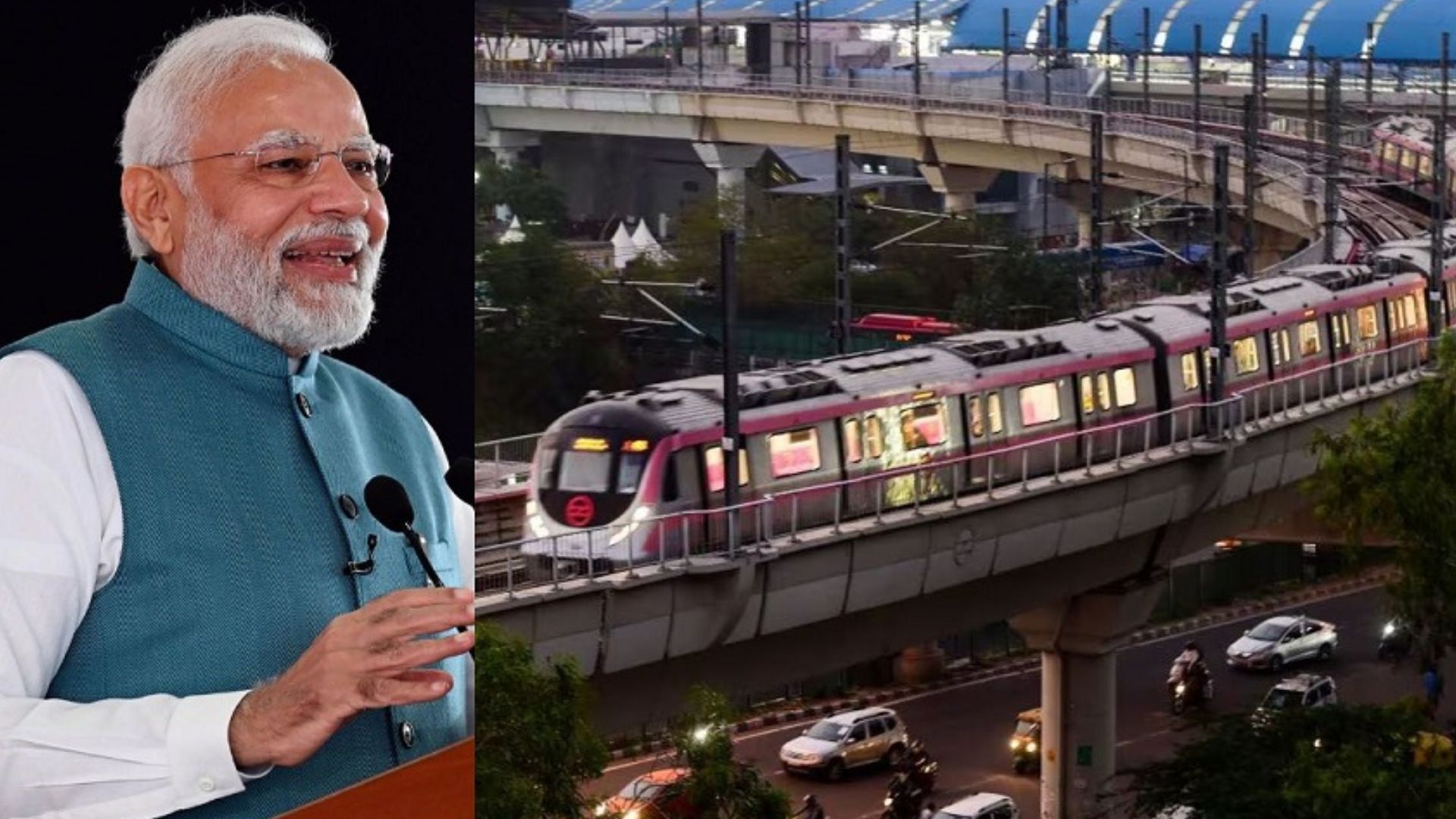The foundation stone for two more corridors in Delhi Metro’s Phase 4 was laid by Prime Minister Narendra Modi on Thursday during an event held at Jawaharlal Nehru Stadium in this city. In a major move to strengthen the national capital’s public transportation system, the Union Cabinet, led by Prime Minister Modi, approved the expansion of the Delhi Metro on Wednesday by approving two new corridors under Phase-IV of the project.
The two approved corridors—the Inderlok to Indraprastha line and the Lajpat Nagar to Saket G-Block line—are anticipated to be crucial in enhancing Metro connectivity throughout Delhi, according to a press release. The Government of Delhi, the Government of India, and foreign funding agencies will provide the project’s estimated Rs 8,399 crore in total funding. With a total length of 20.762 kilometers, these corridors are designed to give commuters easy access to various parts of the city. The 8.385-kilometer-long Lajpat Nagar to Saket G-Block corridor will have eight stations and be fully elevated.
In the meantime, the 12.377-kilometer Inderlok to Indraprastha corridor will have 10 stations spread across 11.349 kilometers of subterranean and 1.028 kilometers of elevated lines. The improved connection to the Haryanan region of Bahadurgarh is one of the standout features of the Inderlok to Indraprastha line. Because of the smooth interchange facilities with other Metro lines, such as the Green, Red, Yellow, Airport, Magenta, Violet, Pink, and Blue Lines, commuters from these areas will have direct access to central and east Delhi. Eight new interchange stations will also be built along these corridors; they will be positioned at key intersections like Inderlok, Nabi Karim, New Delhi, Delhi Gate, Indraprastha, Lajpat Nagar, Chirag Dilli, and Saket G Block.
It is anticipated that these interchange stations will greatly increase the interconnectivity of the Delhi Metro network’s operational lines. Preparing the tender documents and starting pre-bid activities have already been initiated by Delhi Metro Rail Corporation Limited (DMRC). The Delhi Metro, which is already regarded as one of the fastest-growing Metro networks globally, will gain another feather in its cap when the construction of these new corridors is completed in stages by March 2026.























